Straddling the Divide
Bernie Miller, Ethnicity, Commonality and Peacemaking
In “Uneasy Lies the Head,” King Hussein of Jordan discusses straddling the divide between Jordanians and Palestinians, as well as Muslims and Jews. In doing so, he discusses life on the edge, straddling conflict, and ultimately discovering a role of biblical proportions-that of a peacemaker in a region torn apart by religion and ethnic conflict.
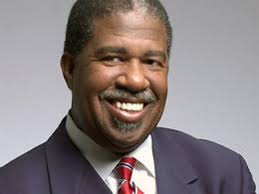 Like King Hussein of Jordan, Pastor Bernie Miller of New Covenant Fellowship Church in Chattanooga, TN., has taken on a similar role, in the ethnically and religiously conflicted area of Chattanooga, TN. Spurned on by census data indicating the multiple ethnicities living in the area, Pastor Miller left a successful career in the music industry to follow his calling of creating a multi-ethnic congregation in an area often torn apart by hate.
Like King Hussein of Jordan, Pastor Bernie Miller of New Covenant Fellowship Church in Chattanooga, TN., has taken on a similar role, in the ethnically and religiously conflicted area of Chattanooga, TN. Spurned on by census data indicating the multiple ethnicities living in the area, Pastor Miller left a successful career in the music industry to follow his calling of creating a multi-ethnic congregation in an area often torn apart by hate.
Pre-civil rights movement Chattanooga encompassed ethnic as well as economic inequality. As stated by former Congressman Moses Freeman, “Survival was really important back then. Black families made less than half of the income that white families that did the same job. My mother made $3.00 a day plus car fare for a bus ride to go to and from work. She couldn’t get a job that paid decent wages working as a secretary or a clerk. Whites who had the same level of education as my mother could go and get those jobs.” (1) He goes on to state, “You were always aware that you could be stopped at any time by the police; which happened very often. We were subject to what they called fee grabbing where African Americans would be required to pay the person who stopped us. That person was sometimes not a police officer or county official.” (1)
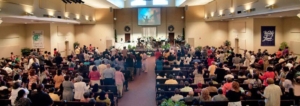 The Chattanooga of today is one of great ethnic diversity, but with a news cycle overwhelmed by black on black crime. While segregation is over, many young black Chattanoogan’s still experience inequalities arguably attributable to their ethnicity. Drugs have contributed to the break-up of black families, and, as a result, “many young African Americans are dropping out of school to join gangs. Many blacks can’t get good jobs because they either have felony convictions on their record or they don’t have the foundation of pride that was once the staple for African Americans who lived through segregation.” (1)
The Chattanooga of today is one of great ethnic diversity, but with a news cycle overwhelmed by black on black crime. While segregation is over, many young black Chattanoogan’s still experience inequalities arguably attributable to their ethnicity. Drugs have contributed to the break-up of black families, and, as a result, “many young African Americans are dropping out of school to join gangs. Many blacks can’t get good jobs because they either have felony convictions on their record or they don’t have the foundation of pride that was once the staple for African Americans who lived through segregation.” (1)
According to Miller, the Chattanooga of today is plagued with a lack of trust, often divided along the lines of one’s political persuasion. He goes on to state that these political lines often, unfortunately, find their way inside church walls. Some pastors have resorted to preaching their politics and making the grave error of thinking that everyone sitting in their congregation, black or white, agrees with their point of view, when this is often not the case. This dangerous assumption has contributed to congregations becoming conflicted and sharply divided, often cutting across lines of race, gender and class. (2)
As a harbinger of peace, Bernie Miller unites his congregation by simply preaching the word of God, as it is expressed in the Christian Holy Bible. “It is quick, powerful, and sharper than any two-edged sword.” By preaching the word, it is easy to discover “the motives of man’s heart.” (2) Miller reflects on two years ago, when the presidential election encompassed Hillary Clinton vs. Donald Trump. Amongst his own congregation, Miller personally witnessed nasty posts making their way onto Facebook and other forms of social media. Despite the rhetoric, Miller refused to be drawn into the conflict. However, he did warn his church members that once an opinion is expressed on social media, it is essentially in the public domain forever. (2)
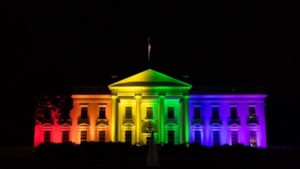 Miller witnessed a huge divide in his church, as well as Chattanooga as a whole, during Barack Obama’s tenure. He goes on to state that Obama’s policies did not hit the Bible Belt well, creating a very real conflict, again surpassing race, gender and class. Division within his congregation manifested itself along political lines, and members felt they had to take a side regarding the conflict. In regard to this issue, Miller states that while Obama showed great compassion for the LGBT community, he failed to show that same compassion toward the Christian community. Miller points out that while Obama shined the rainbow colors on the Whitehouse following the legalization of gay marriage, he did not lower the American flag when Muslim terrorists killed Christian martyrs around the world. This lack of compassion toward Christians led many African Americans to abandon the Democratic party-the only party with which many of them had ever felt any sort of affinity. (2)
Miller witnessed a huge divide in his church, as well as Chattanooga as a whole, during Barack Obama’s tenure. He goes on to state that Obama’s policies did not hit the Bible Belt well, creating a very real conflict, again surpassing race, gender and class. Division within his congregation manifested itself along political lines, and members felt they had to take a side regarding the conflict. In regard to this issue, Miller states that while Obama showed great compassion for the LGBT community, he failed to show that same compassion toward the Christian community. Miller points out that while Obama shined the rainbow colors on the Whitehouse following the legalization of gay marriage, he did not lower the American flag when Muslim terrorists killed Christian martyrs around the world. This lack of compassion toward Christians led many African Americans to abandon the Democratic party-the only party with which many of them had ever felt any sort of affinity. (2)
Miller argues that Hillary Clinton is initially to blame for fueling the African-American hatred toward Trump. He points out that, following her defeat in the 2016 election, Hillary sent her campaign manager down to meet her throng of supporters, rather than coming down to speak with them herself. The night of the election, Hillary’s supporters waited for a concession speech, which they never did receive. This lack of closure, Miller argues, led to her supporters funneling their hatred toward Trump. As Miller states, “They needed Hillary, their champion, to come and speak to them-not her lackey.” To this very day, Hillary’s failure to personally concede to her people has led to a lack of trust and hatred amongst Americans. Charges of racism against Trump have proven to be untrue, asserts Miller, and are merely fueled by the vacuum created by Hillary failing to face her supporters following the defeat. (2)
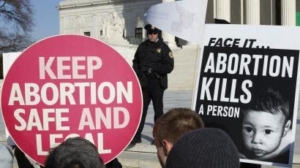 The political minefield of American politics has brought many controversial issues to Miller’s doorstep. As a peacemaker, however, he feels his job is to find common ground amongst his congregation members. (1) In regard to the death penalty, Miller turns to scripture where it states, “‘Take a life, and life shall be taken.’ Once a court has sentenced someone to death, it is no longer important what I want.” (2) In regard to abortion, Miller states, “I am pro-life and pro-choice. However, I wish more people would choose life.” (2)
The political minefield of American politics has brought many controversial issues to Miller’s doorstep. As a peacemaker, however, he feels his job is to find common ground amongst his congregation members. (1) In regard to the death penalty, Miller turns to scripture where it states, “‘Take a life, and life shall be taken.’ Once a court has sentenced someone to death, it is no longer important what I want.” (2) In regard to abortion, Miller states, “I am pro-life and pro-choice. However, I wish more people would choose life.” (2)
During his tenure as a pastor, Miller has personally witnessed how race affects one’s class. He states that the average black person needs to have double the education of his or her white counterparts, in order to compete for the same type of job. He also asserts, however, that this is not something about which people are necessarily intentional, or of which they are even aware. The divide begins, Miller argues, in the university setting, and is fueled by the fact that blacks and whites often share increasingly diverse backgrounds. In many ways, Miller asserts, this defeats the purpose of such individuals even being at a university since these universities so often lack an exchange of diversity. (2)
The diversity in Miller’s congregation is intentional and purposeful. Miller is very intentional about being diverse, and helping members of his congregation find common ground through their faith and in their lives. Diversity is a broad theme, and he aims to find commonality between genders, races, movements, and political beliefs. Feminists have a place in his church, as do more conservative individuals. As a peacemaker, Miller feels his job is to unite all of these different groups together through the word of Jesus Christ. (2)
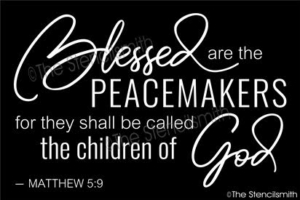 Our world has, throughout time, witnessed peacemakers who enter a society, uniting individuals through a common theme. In Jordan, King Hussein united warring individuals through his simple humanity. In Chattanooga, Bernie Miller has united warring factions by finding common ground in teaching the word of God, as it is expressed in the Christian Bible. Racism, sexism, and politics fail to hold a candle to the loving inspiration provided by a peacemaker in modern times. As Chattanooga grows and changes, the intentional congregation created and fostered by Bernie Miller will continue to assist the people of this area in finding their way to a more meaningful, united future. (2)
Our world has, throughout time, witnessed peacemakers who enter a society, uniting individuals through a common theme. In Jordan, King Hussein united warring individuals through his simple humanity. In Chattanooga, Bernie Miller has united warring factions by finding common ground in teaching the word of God, as it is expressed in the Christian Bible. Racism, sexism, and politics fail to hold a candle to the loving inspiration provided by a peacemaker in modern times. As Chattanooga grows and changes, the intentional congregation created and fostered by Bernie Miller will continue to assist the people of this area in finding their way to a more meaningful, united future. (2)
- https://wdef.com/2015/02/24/black-in-the-day-a-close-look-at-black-history-in-chattanooga/
- Interview, Bernie Miller by Katherine Fry, 4/30/2019




Leave a Reply
Want to join the discussion?Feel free to contribute!